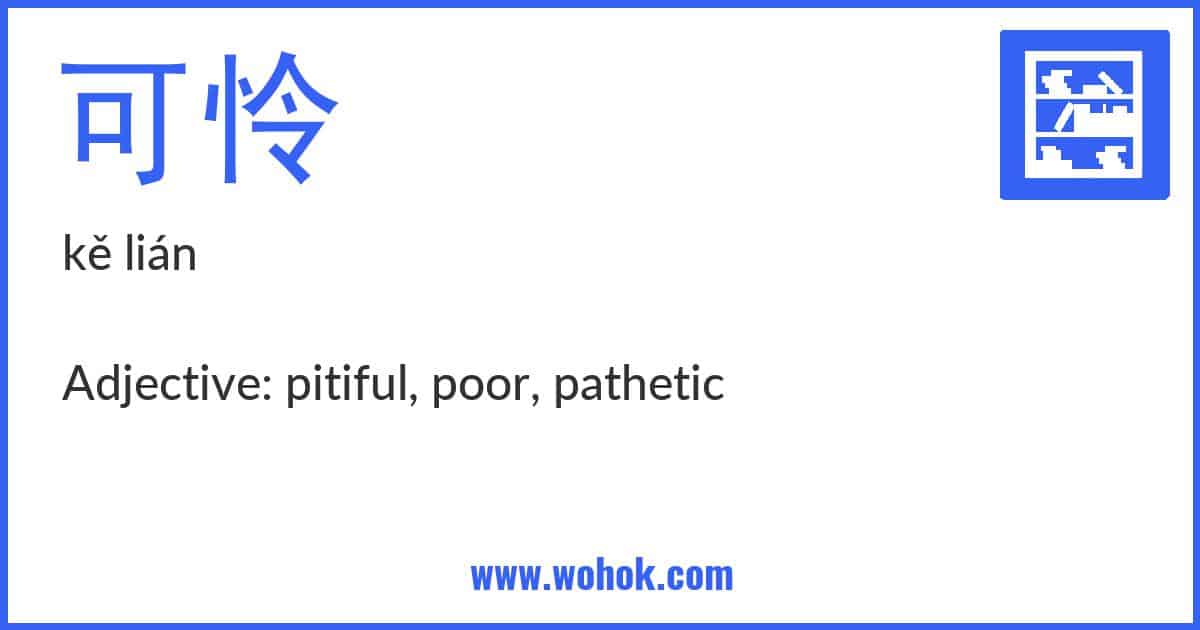The Chinese word 可怜 is commonly used to describe someone or something that is pitiful or deserving of sympathy. It can also refer to a situation that is unfortunate or sad. For example, if someone is sick and unable to take care of themselves, they may be described as 可怜. Similarly, if someone is going through a difficult time, their situation may be described as 可怜. Overall, the word 可怜 is used to express empathy and compassion towards someone or something that is suffering or in need.
Translation
Adjective: pitiful, poor, pathetic
Pronunciation
Example Sentences
| Chinese | Pinyin | Engish |
|---|---|---|
| 他的生活真的很可怜 | tā de shēnghuó zhēn de hěn kělián | His life is really pitiful |
| 这只小狗看起来很可怜 | zhè zhī xiǎogǒu kàn qǐlái hěn kělián | This little dog looks very pitiful |
| 她的家庭境况很可怜,需要我们的帮助 | tā de jiātíng jìngkuàng hěn kělián, xūyào wǒmen de bāngzhù | Her family situation is very pitiful and she needs our help |
| 这个孩子看上去很可怜,我们应该给他一些食物 | zhège háizi kàn shàngqù hěn kělián, wǒmen yīnggāi gěi tā yīxiē shíwù | This child looks very pitiful, we should give him some food |
| 我们应该关注那些可怜的人,给予他们帮助 | wǒmen yīnggāi guānzhù nàxiē kělián de rén, jǐyǔ tāmen bāngzhù | We should pay attention to those pitiful people and help them |
| 那个老人生活很可怜,没有亲人陪伴 | nàgè lǎorén shēnghuó hěn kělián, méiyǒu qīnrén péibàn | That old man’s life is very pitiful, he has no family to accompany him |
HSK
可怜 is part of HSK Level 4 in HSK 2.0. In the newer HSK 3.0 it is part of HSK Level 5.
Learning Card


